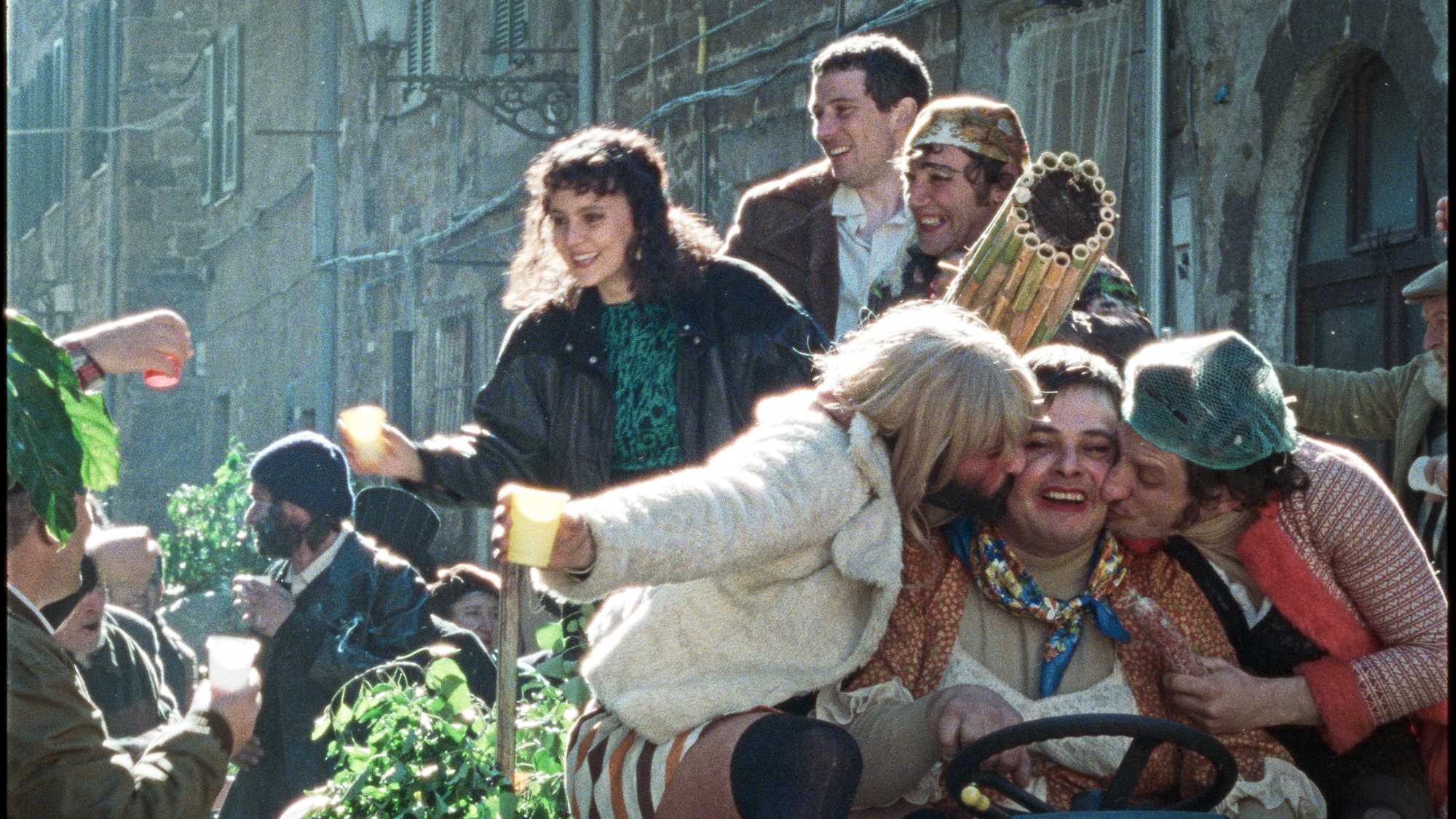Set in 80s Tuscany Alice Rohrwacher’s enchanting new film stars The Crown’s Josh O’Connor as a lovelorn Englishman who teams with an eccentric gang of grave-robbers to plunder ancient Etruscan artefacts.

Josh O’Connor steals the show in Alice Rohrwacher’s giddy magical realist carnivalesque.
Screened as part of NZIFF 2023
La Chimera 2023
| Aug 27 | |
“Alice Rohrwacher’s new film a beguiling fantasy-comedy of lost love: garrulous, uproarious and celebratory in her absolutely distinctive style. It’s a movie bustling and teeming with life, with characters fighting, singing, thieving and breaking the fourth wall to address us directly…
The setting is Riparbella in Tuscany in the 1980s, and Josh O’Connor is tremendous as Arthur, a dishevelled Englishman in a grubby white suit sporting six-day stubble and a perennial cigarette. He is a former archaeological scholar who has assumed the morose, slouching gait and coiled style of a gangster… Using a dowsing rod, Arthur can tell where invaluable Etruscan antiquities are buried and has teamed up with a bizarre homeless gang of grave-robbers to dig them out under cover of darkness.” — Peter Bradshaw, The Guardian
“Shooting fluidly on multiple film formats—35mm, 16mm and Super 16—in the bleachy sky blues and earth tones that have by now become a signature palette, Rohrwacher and her regular DP Hélène Louvart make a virtue of this skittering, literally shape-shifting visual quality, as the shifts in grain, light and frame dimensions from one sequence to the next denote the film’s own transient sense of reality, and the states of earthy pragmatism and mournful reverie between which Arthur hovers. Is he sampling death every time he ventures underground, trying it on for size, at least until he finds something to live for above the surface? Is trading in the currency of the past a way to distance himself from a lonesome present? Raffish and boyish at the same time—or switching between either mode as a cover for the other—O’Connor’s deft, droll performance implies such possibilities without sentimentalizing them.” — Guy Lodge, Variety